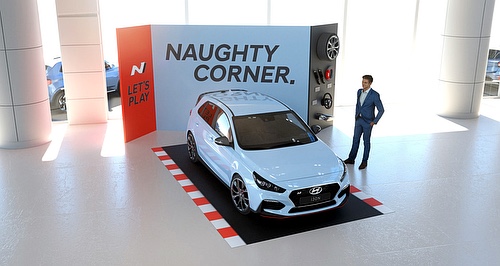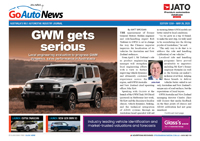News - Hyundai - i30 - Sedan NDCT driving Hyundai N salesNew eight-speed transmission proves a booster for hot Hyundais16 Dec 2021 HYUNDAI'S long-awaited introduction of the company’s own eight-speed twin-clutch transmission has proved a strong draw for customers. Even at the i30 N hatch’s release in 2019, the company indicated that an automatic transmission was part of the plan.
Already found in the Santa Fe paired with a more sedate diesel engine, the brand-new wet clutch setup is a vast improvement over the well-known dry-clutch seven-speed transmission found in cars fitted with the 1.6-litre turbo, such as the i30 N Line and all-wheel drive Tucson models.
Making the transmission available in the high-performance N line-up with the powerful 2.0-litre turbo four-cylinder has proven a boost to the go-faster models’ sales.
Hyundai says that dealers have 250 names against the new Kona N while there has been no pre-sale for the new i30 Sedan N given various challenges in the market. The i20 N, while not offered with the DCT, has 350 orders.
By the end of 2021, Hyundai had sold 1200 i30 N cars, with November accounting for almost half of the year’s sales with the release of Kona, i20 N and the introduction of the DCT gearbox. Total N sales (as distinct from N Line) totalled 1400 with more to come based on the pre-orders.
Speaking to GoAuto at the launch of the final N model for 2021 – following on from i30 hatch facelift, the Kona N and i20 N – Hyundai’s GM of Product Andrew Tuitahi and Product Development Manager for Australia, Tim Rodgers said they were pleased with the brand’s progress.
When asked about the buyer profile between the i30 hatch, sedan and Kona N models, the Tuatahi said, “It's really hard to say. When we were doing our research, those buyers are almost identical between the three.”
Rodgers also suggested that the simultaneous release of the DCT made it difficult to split the profiles. “The other thing that makes it hard to read is DCT. Because we brought in DCT at the same time (as Kona), it kind of muddles our data quite a lot. Anyone comes in and walks away with an N, we're happy.
Tuatahi continued, “We think there will be cross-shopping across the three. We see them as being complementary but offering some differences that maybe are not tangible on paper. Some people will be drawn to the more conservative hatch styling. Some people are going to see the slightly more ostentatious sedan and think that it looks newer, more modern. And then Kona is an SUV and people just have an affinity for SUVs.”
The pair also agreed that a number of N sales would be because each of the models was the top-of-the-range.
“That's one of the things we're expecting now that we've got DCT. When it was a manual-only proposition you really had to be a focussed driver-owner. With the introduction of DCT, we will see some people who are buying any of the three simply because it's the most expensive.
“That said, N compared to something like a Golf GTI, (the i30 N) is a little bit more focussed in terms of the driving dynamics and driving engagement. And along with that, there are some small compromises to everyday usability. I think N will represent a slightly different buyer.”
“What we were surprised by was how well manual held up in the hatch facelift launch. We had a theory that a lot of people were waiting for a facelift. We've got a lot of dedicated manual enthusiasts who came out and bought up manual hatches, but we've seen that percentage start to pull back.”
Rodgers added, “It’s hard to measure because of supply (constraints).”
With the light car, small car and compact SUV segments accounted for, the popular Tucson must be the next target for N?
“Tucson is a really interesting case for us. We offer the N Line as an option pack across the range. We try to target that as the no-brain option, good additional spec for a reasonable amount of money. Since we've had that car in reasonable supply, at least equivalent supply to the rest of the range, we're seeing about a 45-50 percent take rate.
“We'll take a little bit more time to see how that normalises. There have been delays on the 1.6 turbo and the diesel and then N Line was the latest. And we expect delays to carry on through next year, but to what extent I can't say,” he concluded.  Read more |
Click to shareHyundai articlesResearch Hyundai i30 pricing
Motor industry news |

















Facebook Twitter Instagram